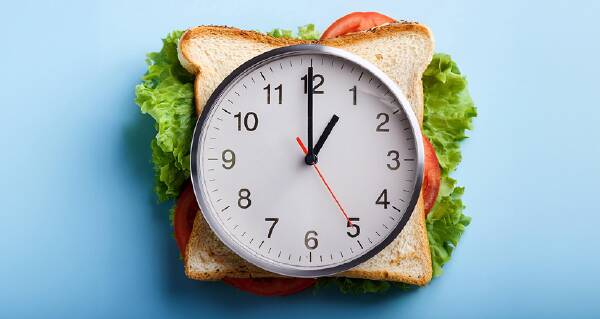
The cheapest dozen eggs at Woolworths, Coles and Harris Farm in Newcastle on Tuesday afternoon were a cage punnet for just under $6. But then, at the top of the market, a 10-pack of Pirovic organic free-range eggs went for $16.49.
Subscribe now for unlimited access.
or signup to continue reading
As the prices rise, hen suppliers filling orders for small-time farmers and backyard hobbyists across the state say the rise in demand for laying chickens has skyrocketed.
"It's like toilet paper all over again," Glenn Duncan said, who supplies egg and meat chickens to small farms and backyarders looking to skirt the inflationary price rises.
Mr Duncan, who has supplied birds across the Hunter and interstate, anticipated the egg shortage driving up prices was likely to take years to abate as commercial providers look to restock devastated farms effectively from square one in the wake of an outbreak of bird flu midway through last year.
"By the time they quarantine egg farms, clean them all out, and then put day-old chicks back in, there is another six months before they get eggs out of them," he said. "It is a case of the big suppliers being unable to keep up. It will just be an ongoing thing for a couple of years."

At the smaller end of the market, Mr Duncan and Merriwa hobby supplier Julia Davies described a double-barrelled demand. Backyard producers who bought in during the COVID spike are now looking to replace animals that are too old to be productive, while new customers looking to offset rising prices also get in on the action.
"We buy our day-old chickens from the commercial hatcheries," Mr Duncan said. "And the big free-range farms buy from the same hatchery that we buy from, whereas, all of a sudden, they have lost all those chickens."
"It is the season when egg production is low," Ms Davies said. "And newbies are coming in wanting to get new birds. And people (who are already in the market) want extra birds to increase their egg production."
"Everyone is panicking, wanting to get more, but it doesn't help that it's just the wrong time of year. And a lot of the main growers have not been able to restock."

Ms Davies has been in the poultry industry for about 25 years. She said the demand for birds now has reached par with what she saw during the pandemic, as chickens across the east coast have been directed toward helping ailing commercial farmers restock after the disease outbreak.
"It's like a domino effect," she said. As prices rose, her customers were turning to smaller-scale and home sustainability options to offset grocery costs, which, in turn, increased demand for laying hens, already a hot ticket item in a market where demand was outstripping supply.
Still, Ms Davies said there were upsides.
"It's making people realise that you can't just rely on the shops all the time," she said. "There is nothing wrong with being more sustainable in your own home."
An outbreak of bird flu in June last year at 16 locations in NSW, Victoria and the ACT - 11 of which were commercial farms - wiped out about seven per cent of the national egg production capacity, representing the destruction of more than 1.8 million birds.
In January, the peak Australian egg production representative, Egg Farmers Australia, said the outbreak was a driving cause of the national egg shortage, among other factors, including seasonal demand and the transitionary pressures of farmers moving away from cage production to barn-laid and free-range systems.
Egg prices have risen fairly consistently for years, and stakeholders attribute the cause to the same factors.
Still, not-for-profit industry researcher Australian Eggs predicts supply could return to a near-normal by the end of the year if another outbreak can be avoided.
"Demand for eggs during this time remains high, with over 18 million consumed each day. This high demand has put immense pressure on the supply chain, but farmers have been working hard throughout to see disruptions end as soon as possible," Australian Eggs managing director Rowan McMonnies said in March.

While Mr Duncan said that even after the outlay to set up an appropriate coop consistent with local animal regulations and ongoing feed supply, the dollar-for-dollar comparison would still see shoppers saving with a backyard operation, he and other suppliers who spoke with the Newcastle Herald urged responsible animal care as new producers took on chickens.
"(Some people) want to buy chickens but for some reason don't want to feed them," Mr Duncan said. "They think they will survive on grass and lay eggs. We get a lot of calls from those people wanting to know why their chickens aren't laying."
"Paramount is the wellbeing of the birds," Ms Davies said. "They need to be safe. It is good that my hobby can pay for itself, but it's not all about the money - it's about the education and getting the right setup to help them get their eggs."
Former Nulkaba Hatchery owner turned online supplier based in the Hunter region, Jeffrey Moth, agreed there was a notable rise in inquiries from backyard hobbyists as COVID-inspired small producers looked to renew their stock, and new hopefuls came in.
"There's not too many people who think about it too much beforehand, and that's why we have to give them a bit of help," he said. "If they don't get it set up properly, especially coming into winter, the day-old chicks may not survive."
City of Newcastle rules say backyard chickens, among other regulations, cannot be kept within 4.5 metres of a house, public hall, school or food space and that yards must be fully enclosed to prevent escape.
Muswellbrook City Council similarly allows residents to keep fewer than 10 birds without the need for regulatory checks if they meet the same standards and encourages owners to treat birds for parasites and other diseases regularly.



















